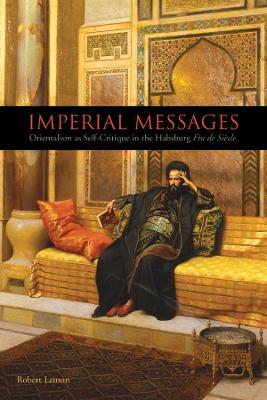In recent years a debate has arisen on the applicability of postcolonial theory to the Austro-Hungarian Empire. Some have argued that Austria-Hungary's lack of overseas territories renders the concepts of colonialism and postcolonialism irrelevant, while others have cited the quasi-colonial attitudes of the Viennese elite towards the various "subject peoples" of the empire as a point of comparison. Imperial Messages applies postcolonial theory to works of orientalist fiction by Hugo von Hofmannsthal, Robert Musil, and Franz Kafka, all subjects of the empire, challenging Edward Said's notion that orientalism invariably acts in the ideological service of European colonialism.It argues that these Habsburg authors employ oriental motifs not to promulgate Western hegemony, but to engage in self-reflection and self-critique, including critique of the foundational concepts of orientalist discourse itself.By providing detailed textual analyses of canonical works of Austrian Modernism, including Hofmannsthal's "Tale of the 672nd Night," Musil's Young Toerless, and Kafka's "In the Penal Colony," the book not only offers new postcolonial readings of these Austrian works, but also shows how they question the conventional postcolonial and post-Saidian view of orientalism as a purely hegemonic discourse.
Robert Lemon is Associate Professor of German at the University of Oklahoma.
- ISBN10 1571135006
- ISBN13 9781571135001
- Publish Date 1 June 2011
- Publish Status Active
- Publish Country US
- Publisher Boydell & Brewer Ltd
- Imprint Camden House Inc
- Format Hardcover
- Pages 184
- Language English
